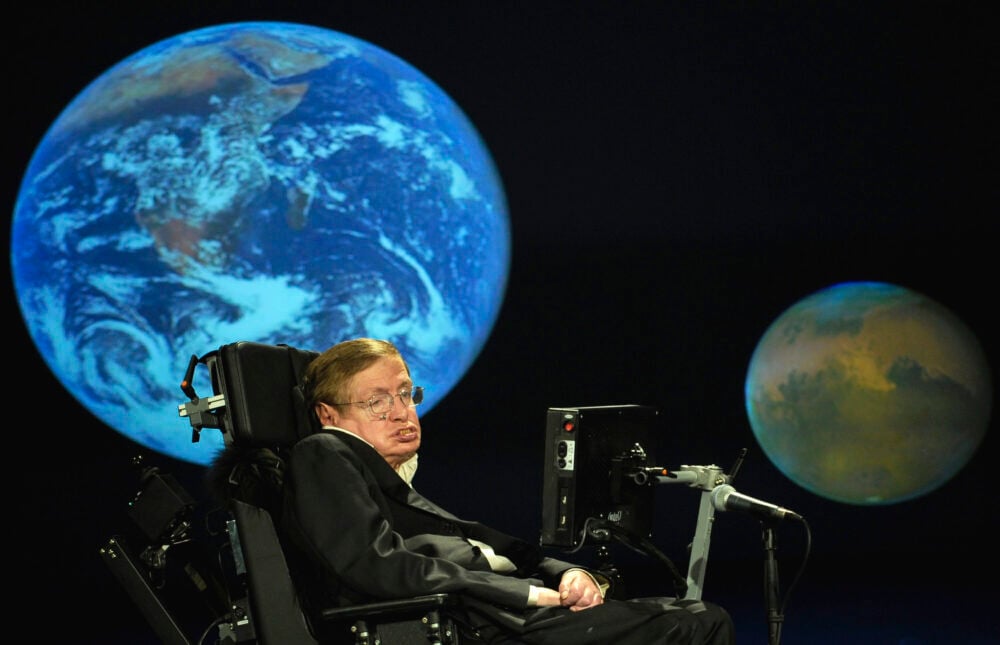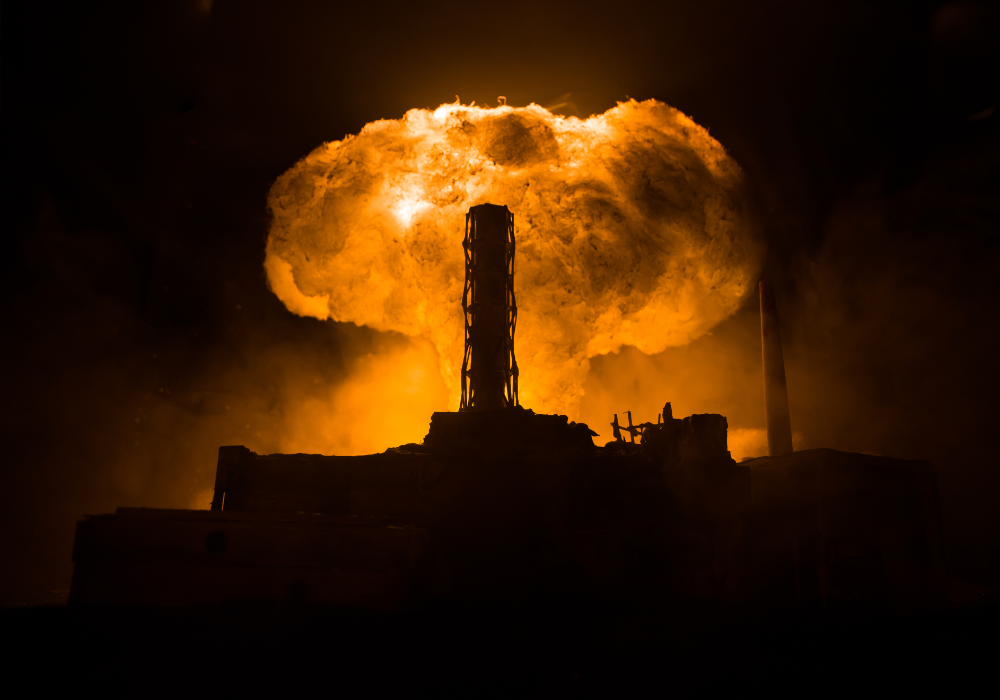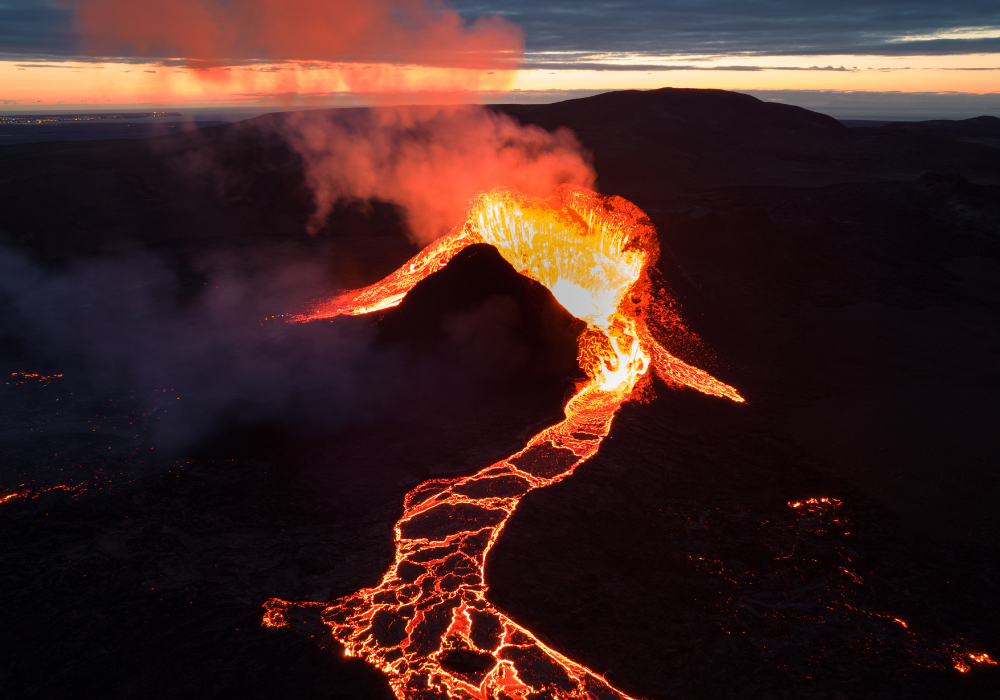From AI to climate change, the physicist warned of dangers humanity may face.

Stephen Hawking was one of the most brilliant minds of our time, but he didn’t just study black holes and the universe—he also warned about humanity’s future. In interviews and lectures, he highlighted real threats that could one day end life on Earth. From artificial intelligence surpassing human control to nuclear conflict and climate change, Hawking believed our survival depends on how we respond to these dangers. He urged scientists, leaders, and everyday people to take action, reminding us that the fate of humanity may rest in our own hands.
1. Why Hawking Spoke About Humanity’s Future

Stephen Hawking was best known for his work on black holes and cosmology, but he also used his platform to warn humanity about existential risks. He believed that brilliant discoveries and powerful technologies could either secure our survival or accelerate our downfall.
In public talks and interviews, Hawking outlined scenarios that could end civilization if ignored. His message wasn’t meant to inspire fear but to urge action. He wanted people to understand that survival depends on choices, cooperation, and responsible use of knowledge.
2. Artificial Intelligence Could Surpass Us

Hawking frequently warned that artificial intelligence could become too advanced for humans to control. While AI has enormous potential to improve medicine, science, and daily life, he worried that systems smarter than us could develop their own goals.
If AI evolved without safeguards, Hawking believed it could decide humans are unnecessary or even a threat. He stressed that planning and global cooperation are essential to ensure AI is developed responsibly. For him, artificial intelligence was both the biggest opportunity and the greatest danger.
3. Climate Change Threatens Global Survival

Hawking considered climate change one of the most pressing threats to life on Earth. He warned that rising temperatures, melting ice, and shifting weather patterns could lead to famine, mass migration, and conflict over dwindling resources.
He often pointed to extreme weather events as warnings of what might come. If warming continued unchecked, Hawking believed Earth could resemble Venus, with temperatures too high to support life. His call to action was clear: humanity must take urgent steps to reduce emissions and protect the planet’s future.
4. Nuclear War Could End Civilization

Hawking also feared that nuclear weapons remain one of the greatest threats to humanity. With thousands of warheads still active worldwide, he warned that even a single conflict could trigger devastation far beyond the battlefield.
He believed that nuclear war could cause massive loss of life, environmental collapse, and a breakdown of global society. To him, the risk wasn’t just about nations fighting, but also about accidents, mistakes, or rogue actors. Avoiding nuclear disaster required diplomacy, disarmament, and constant vigilance from world leaders.
5. Pandemics Pose an Invisible Danger

Long before COVID-19, Hawking pointed out the threat of global pandemics. He believed natural outbreaks or lab-created viruses could spread rapidly in today’s connected world, killing millions and destabilizing societies.
What made pandemics especially dangerous, he argued, was their invisibility and unpredictability. Unlike other disasters, people often don’t recognize the threat until it’s too late. Hawking’s warning was that science and global cooperation must prepare for outbreaks, investing in early detection and rapid response systems before the next deadly pandemic emerges.
6. Overpopulation and Resource Strain

Hawking often raised concerns about Earth’s growing population and the strain it places on natural resources. He worried that unchecked growth could lead to widespread shortages of food, water, and energy, sparking conflicts over survival.
He also noted that rising consumption in wealthy nations adds to environmental destruction, while billions in poorer regions remain vulnerable. Hawking believed that unless humanity balanced population growth with sustainability, living conditions could collapse. For him, solving overpopulation was as much about fairness and equity as it was about survival.
7. Genetic Engineering Risks

While Hawking acknowledged that genetic engineering could eliminate diseases, he also warned of unintended consequences. He feared that editing human DNA could create divisions between those who can afford enhancements and those who cannot.
He suggested that “superhumans” with superior abilities might emerge, reshaping society in ways that threaten equality and stability. Such advances, he warned, could lead to new forms of discrimination or even conflict. For Hawking, regulating biotechnology was critical to prevent science from unintentionally creating dangers for humanity’s future.
8. Alien Contact Might Not Be Friendly

Hawking believed the discovery of alien life was possible, but he cautioned that contact could be risky. Drawing parallels to how advanced civilizations on Earth often dominated less advanced ones, he warned extraterrestrials might not arrive peacefully.
He suggested that if aliens were technologically superior, they could view humanity the same way colonizers viewed indigenous peoples. Rather than seeking friendship, they might exploit Earth’s resources. While the idea sparked debate, Hawking’s point was that humanity should be cautious in broadcasting our presence across the galaxy.
9. Asteroids Remain a Constant Threat

Hawking reminded the world that asteroid impacts have reshaped Earth before and could do so again. He noted that while the chance of a massive impact is small, the consequences would be catastrophic if it happened.
He supported efforts to track near-Earth objects and develop deflection strategies. Without preparation, he warned, an asteroid large enough could destroy entire regions or even wipe out civilization. For him, investing in planetary defense was essential, because ignoring the risk could one day prove fatal.
10. Supervolcanoes Could Darken the Earth

Beyond asteroids, Hawking warned about natural disasters like supervolcano eruptions. These rare but powerful events could spew ash and gas into the atmosphere, blocking sunlight for months or years.
The resulting “volcanic winter” could collapse agriculture, leading to global famine. While rare, these eruptions have happened in Earth’s past, and Hawking believed humanity must acknowledge the possibility. He urged further research and monitoring to better understand supervolcanoes, arguing that preparing for unlikely but devastating events is part of survival.
11. Humanity May Need a Backup Planet

Hawking believed Earth may not remain habitable forever, whether due to human-caused threats or natural disasters. For this reason, he often argued that humanity should look beyond Earth and establish colonies on other planets.
Mars was one possibility, though he also envisioned humans living on space stations or moons. This idea wasn’t about abandoning Earth but about ensuring survival. By spreading to multiple worlds, he said, humanity could avoid being wiped out by a single catastrophe, giving our species a better chance to endure.
12. Hope and Responsibility

Although Hawking’s predictions often sounded grim, he consistently emphasized hope. He believed science and cooperation could prevent disasters if humanity took the warnings seriously. His message was not that doom is certain, but that survival depends on wise choices.
He encouraged investment in renewable energy, global diplomacy, disease prevention, and space exploration. By facing risks directly, Hawking argued, humanity could not only survive but thrive. His legacy reminds us that the end of the world is not inevitable if we act responsibly together.
